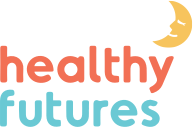Your Body
In weeks 37-40 of your pregnancy, you may:
Breathe more easily – as the baby drops into a lower position.
Have increased need to urinate – It’s okay to take breaks as needed.
Notice liquid (colostrum) leaking from your breasts – Wash daily but don’t use soap on nipples. Nursing pads might be helpful.
Notice your ankles swelling at the end of the day – Rest on your left side and elevate legs when sitting. Drink six to eight glasses of fluid a day.
Feel anxious about the birth, parenting and family changes – Talk with spouse or partner so they know your feeling. Practice breathing and relaxation techniques. Make lists and pack your hospital bags because being prepared can put your mind at ease.
Your Baby
During my last month, I gain about half a pound per week. I’m getting ready for birth and now may rest lower in your abdomen. My fingernails and toenails are fully formed and the bones of my head are soft and flexible for birth.
Your Checklist
For Weeks 37-40
Now is the time to select a health care provider for your baby. If you have questions, contact your Healthy Futures nurse. She will be calling you after delivery to check in and offer a home visit. This is a great opportunity to get the questions answered that come up after you get home.
Pack your hospital bag. The beginning of labor is unpredictable and may happen before or after your due date. Be prepared for your delivery with a bag packed, birth plan ready and a plan for what to do with other children and / or pets when you’re in the hospital. [#74]
Get trained in first aid and CPR. Choking is very common among babies. Be prepared by taking an Infant first aid and CPR class at your local hospital or through the American Red Cross. For local resources, contact 1-800-RED-CROSS or visit the Red Cross online.
Prepare a safe sleep environment for your baby: in their bed, the house, and the car they travel in. Babies are most safe when they…
- Live in a smoke-free environment and travel in a smoke-free car
- Sleep alone in a crib
- Sleep on their back
- Sleep in a crib with no toys, stuffed animals, bumper pads, quilts or blankets
- Sleep in a crib with a firm crib mattress and tight-fitting sheet
For more information on sleeping safe, visit michigan.gov/safesleep.
Install the car seat properly. Get it checked. During car seat safety checks, certified technicians find more than 90 percent of all car seats are improperly installed or incorrectly fitted. To ensure your baby’s safety, now is the time to have the car seat you plan to use checked for proper fit. Ask your Healthy Futures nurse for the resources available in your community For more info visit Safecar.gov or find a certified car seat technician.
Prepare to Breastfeed. As you prepare for the birth of your baby here are a few things to consider if you are planning to breastfeed:
• Remember that even though you and your baby have everything needed for successful breastfeeding, it is still a learned skill for moms and babies. Dads have an important role to learn too.
• Newborns typically breastfeed every one to two hours with the time measured from the start of one feeding to the start of the next feeding. Breastfed newborns feed frequently because breastmilk is easily absorbed and digested. The time between feedings increases as your baby grows.
• It is normal for new parents wonder how if their baby is receiving enough breastmilk. Here are a few signs of a good milk supply:
• Seeing or hearing your baby swallow while sucking
• Adequate wet/soiled diapers – the hospital will give you a guide to follow for wet/soiled diapers after you deliver.
• Weight gain – on the average, infants gain 5 to 7 ounces per week.
Once you are home with your baby, there is breastfeeding support available. You will not be alone. Your Healthy Futures nurse, lactation consultant, and local breastfeeding support group, such as La Leche League, are all helpful resources. If you are a first-time breastfeeding mom, a breastfeeding support group can be especially helpful in answering questions and helping you connect with other moms.
Be sure everyone in your family is up to date on their immunizations. You can help protect your infant from diseases like pertussis (whopping cough) and influenza by providing a circle of protection. This means that everyone who is around your baby has had their Tdap vaccine (Tetanus-Diphtheria-Pertussis.)
Questions to ask your Health Care Provider
1. Ask your health care provider when and where you should call or go when your labor starts.
2. If you haven’t already, Discuss future family planning options with your health care provider.




